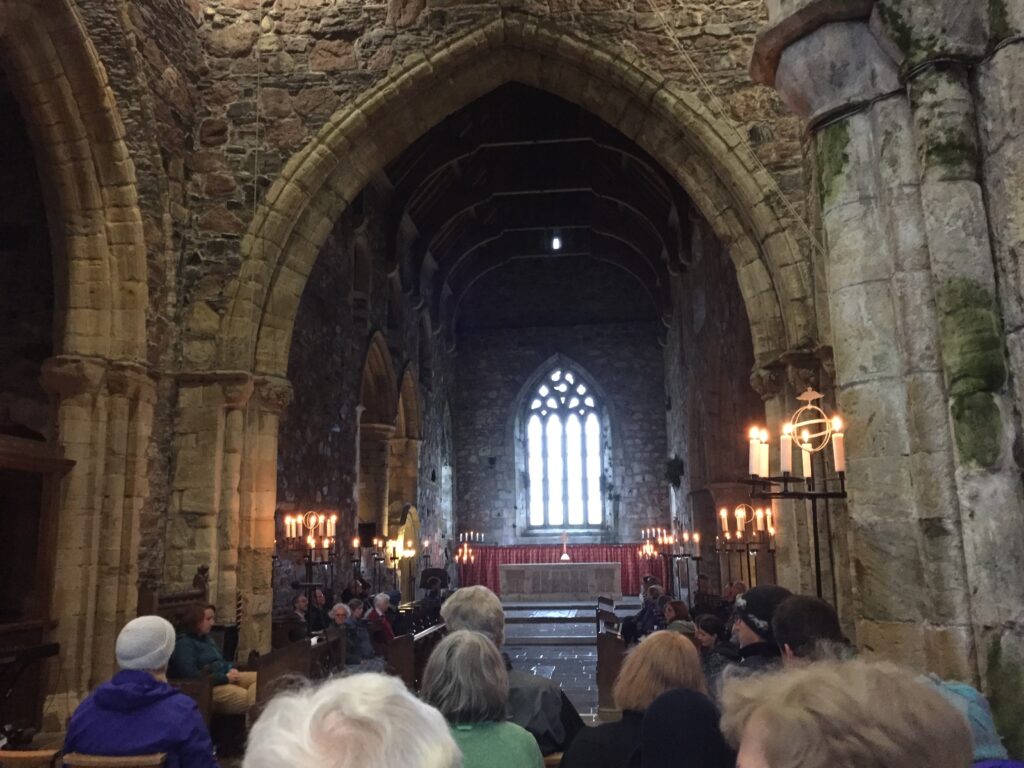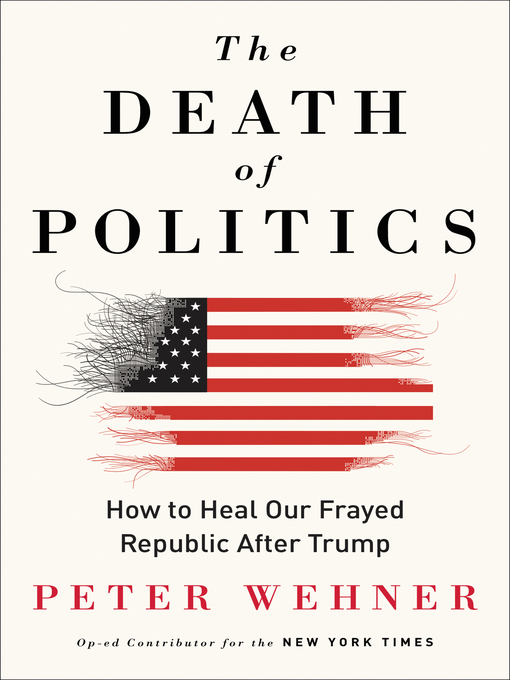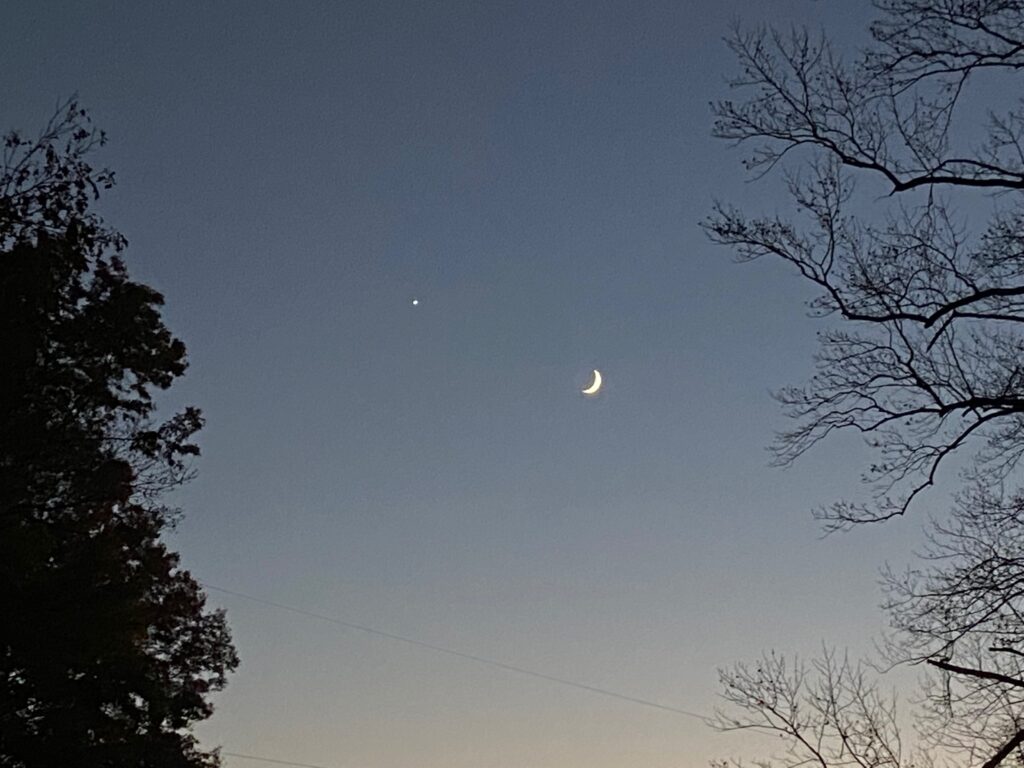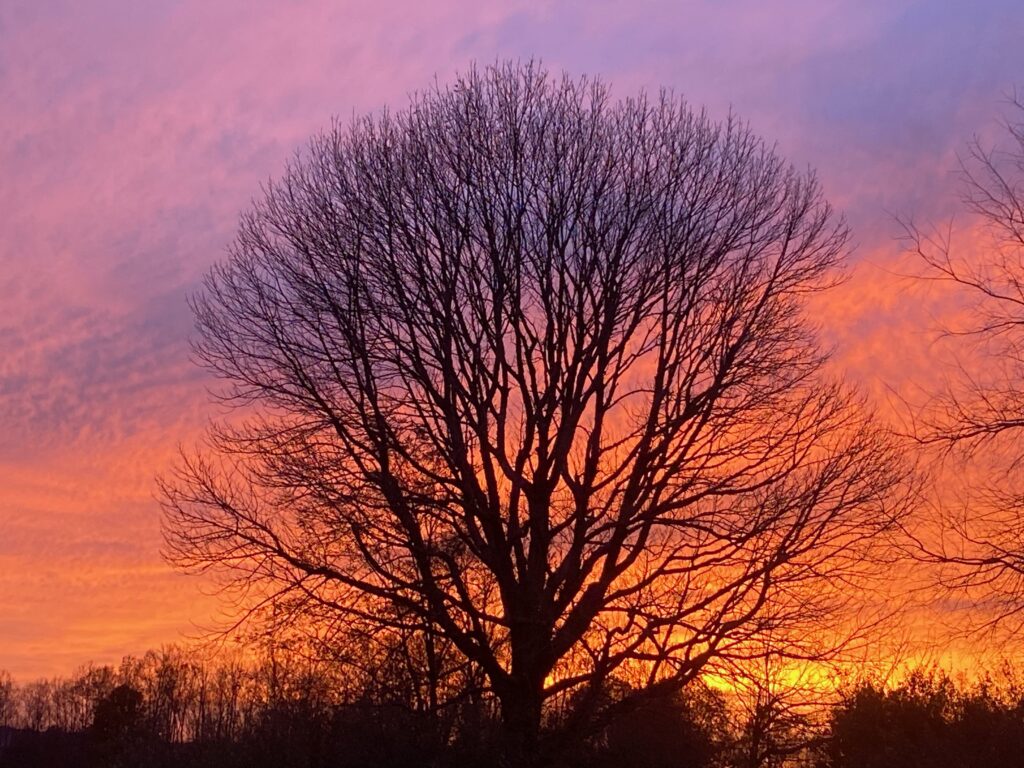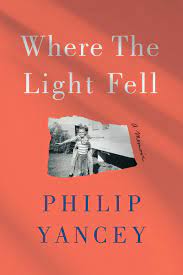Jeff Garrison
Bluemont and Mayberry Presbyterian Church
Luke 21:25-36
November 28, 2021
At the Beginning of Worship
Today we begin our Advent journey: four weeks of preparation for Christ’s coming. Advent is about waiting. During this season we recall the centuries the Israelites longed for a Messiah. It’s also a season in which we are reminded that we, too, wait the return of the Messiah at the end of history. We wait in hope for what is to be. We wait because we know the future will be wonderful, kind of like a kid knowing that Christmas will be incredible when whatever present is the big one that year is found sitting under the tree.
But there is a trap in such thinking. Yes, it’ll be wonderful to be united for eternity with our Savior, but Jesus wants us to enjoy life, here and now. We’re not to just sit and wait for his return. Let me explain…
If you haven’t read Marshall Goldsmith, I recommend him. He is one of the world’s leading business gurus and advises leaders of multi-national companies. In one of his books, Goldsmith describes himself as a cultural Buddhist. This means he appreciates Buddhist philosophy but doesn’t practice the religion. He describes what he gains from Buddhism as an antidote to what he labels our “Great Western Disease.” We often think, “I’ll be happy when…” I’ll be happy when I have a million dollars, or a new house, or sports car, or a boat, or a spouse… We’re like me as a boy waiting on Christmas, “I’ll be happy when I find that Daisy BB gun under the tree.”
Don’t put your happiness into the future
The idea of achieving a goal to bring about happiness puts everything off into the future. Such thinking is very Western. We fixate “on the future at the expense of the present.”[1]
Interestingly, Jesus says similar things about making the most of today and not worrying about the future, especially in his “Sermon on the Mount.”[2] But then, Jesus’ way of thinking wasn’t very Western. As we’ll see in our morning text, Jesus reminds us that the near future may not even be all that nice. But we should have faith and not worry.
Before Reading the Scripture
We’re exploring a passage from Luke’s gospel today, from the 21stchapter. During this Advent season, I will draw upon the scriptures from the lectionary.
Let me give you some context. Jesus is finishing up his earthly ministry in Jerusalem. Our passage is the last of Jesus’ public addresses recalled by Luke in his gospel.[3] The setting is the week between what we call Palm Sunday, when Jesus entered Jerusalem, and Good Friday, when he was crucified.
Jesus and the disciples are on the temple grounds. The chapter opens with Jesus pointing out to the disciples the “widow” giving her mite to the temple treasury. Then he begins to speak about the temple’s forthcoming destruction. This shocked everyone. That structure was strong. I just learned recently that the temple foundation stones Herod used were 40 cubits in length, approximately 60 feet. Can you image moving such rock without modern equipment?[4]
Yet, approximately 30 years after Jesus spoke these words, when Rome puts down the Jewish Rebellion, the Empire destroys both Jerusalem and the temple. Our passage is an example of eschatological literature. But Jesus uses a near event (the destruction of the temple) to foreshadow a distant event of which we still wait.
After the Reading of Scripture
I looked back in my files and found the last time I preach on this text was in December 2012. I’d made a note on this sermon. Five days earlier, I had a surgery to remove and biopsy a cyst from my forehead. The blood for the surgery drained down around my eyes and my cheeks. My right eye was almost swelled shut. I looked like I had gone twelve rounds with George Foreman. I provided the congregation a visual image of what one might look like dealing with the chaos Jesus’ describes. I may not be the best thing to look at in the pulpit, but I look a lot better today than I did that day!
Worrying about “The End”
“Nothing lasts forever; even the earth and sky will pass away,” Jesus tells us. Only his words will survive. Or, to put it another way, only God is eternal. Of course, we want to know when such things will happen. We’re no different that the disciples.
Are the things Jesus speaks of in this chapter happening, now? Some will say yes, but that’s nothing new. And yet, Jesus, in other places, is adamant that we’re not to worry about the tomorrow.[5] Furthermore, Jesus teaches that only the Father in Heaven knows when the world will end.[6] What’s going on here? Is Jesus giving us a clue? I don’t think so.
Whenever things start to go bad, people begin predicting the world’s demise. But so far, the world muddles along. Barry McGuire sang about “The Eve of Destruction” in 1965 and with minor tweaks to the lyrics, the song would be just as relevant in 2021 as it was then. Prophets come and go, plagues come and gone, wars and come and go, but so far, the world remains. This doesn’t mean the world we know won’t end, it will; but as for when, we have no idea. And we’re not to worry.
Avoid those who suggest the end is at hand
Jesus doesn’t want us to worry whether today will be the day. After all, earlier in the chapter, Jesus warns the disciples not to run after those prophets who claim that the time is near.[7] Instead, I think this passage is more pastoral, about how we are to live our lives in the middle of chaos. As disciples, we’re not exempt from suffering the tragedies mentioned. But instead, as Jesus’ said earlier in this chapter, during all this trouble, we are to be Christ’s witnesses.[8]
Know you’re in God’s hands
Jesus begins with the cosmos (the heavens and the earth), then moves to the changing of the seasons, and concludes with words that speak to our hearts. We’re to live knowing that things are in God’s hands and are under control. So, it doesn’t matter if the world ends today or a thousand years from today. God matters, and God has a lot more power and compassion than us. We’re not left to fend for ourselves, but to take hope in the power of a loving God.
Mayor Bob
One of the first individuals I met in Hastings, Michigan, as I was discerning the call to the Presbyterian Church there, was Bob. He was the mayor, and a good man but had never joined a church. We became friends. I think it took Bob five years before he attended a church service, even though we often talked about faith. Slowly, he began attending church and made a profession of faith. Around the same time, he was diagnosed with cancer.
And then the strangest thing happened. In the months before he died, Mayor Bob ministered to me many times. It was like a role-reversal. I’d visit with Bob, sometimes in the hospital. I tried to help him make sense of things and to remind him of God’s presence despite evidence to the contrary. But Bob accepted what was probably going to happen. He would tell me that he desperately wanted to live. He had things he wanted to do in the city and community. But he also said that it doesn’t matter what happens. It’s going to be okay. If he was given another reprieve from cancer, great! And if not, fine. He’d be in Jesus’ hands.
What an incredible testimony. It’s one thing to make such a testimony when things go well. But as Jesus reminds us in this passage, things won’t always go well. Bob had the kind of faith Jesus encourages. Do not worry about these things. At some point, in our lives all of us will have such signs. But instead of worrying, we’re to live in the hope that such signs mean our redemption is near. Only someone assured of his or her faith can have that kind of trust.
Don’t try to predict “The End”
People have often tried to interpret when the end will be based on Jesus’ words, but that’s a misinterpretation of what our Savior taught. Jesus taught us to not to worry about tomorrow, not to fear the end, but to live for today.
The danger of fear
Yet people misuse these texts to incite fear. That’s not their purpose. Jesus doesn’t want us to run around afraid. Jesus wants us to be assured when things look bad that God is with us. The 23rd Psalm reminds us that the Lord is with us when we walk through the valley of the shadow of death. Jesus is not trying to scare us but to assure us when things look bad.
I had a professor in seminary who spoke about hell-fire sermons. I think the same warning should be made about fearful preaching on these kinds of texts. He said that if we dangle the souls of our congregation over the fires of hell, we may cause more fear than salvation. In this case, our listeners may wind up hating evil more than loving the good. Such teachings result in disciples who don’t necessarily follow Jesus. Instead, they become good haters who miss the whole point of Jesus’ message. Sadly, we see this a lot!
Jesus tells us in this passage that when we see things happen which we can’t explain, we should raise our heads because our redemption is drawing near. We are not to be afraid. Jesus doesn’t say when this will happen, but that it’s getting closer! Time marches on.
The near and distant future
In this passage, Jesus speaks of something that is soon, the destruction of Jerusalem and the temple. Such events were only a three or four decades in the future. They foreshadow the end of history when Jesus returns. So, we live in the in-between season, waiting for our Savior’s return. As one Biblical scholar writes, “The end cannot be prepared for by anticipating and forecasting, but by watchfulness and faithfulness in the present.”[9]
Know by the seasons
We’re now entering the winter season. We’ve had several hard freezes; on Friday morning, the winter wind howled. But we all know that come March there will begin to be signs of springs. In the swamps, even if there is still snow on the ground, skunk cabbage will appear. It’s a unique plant that creates its own heat and can melt enough snow to poke its head above the muck. In other areas, shoots of ramps will appear. Then buds on trees will start popping open and in places the ground will be covered with trillium and mayflowers.
We’ll know then that winter is on its way out and summer is approaching. Jesus says it’s going to be the same way with his coming. So, we “guard our hearts” and avoid trying to ignore the signs by over-indulging ourselves or getting drunk, yet we’re not to worry. Yes, we remain on guard and alert but don’t be frightened. We have hope in the one in control.
Conclusion
By being alert, but not being overly concerned, our hearts won’t be weighed down. We accept today as a gift from God and rejoice in it, but we also realize that tomorrow will be a gift of God, whether the earth continues, or dissolves. But we’re not to worry, we’re to be concerned for today and that we’re doing what we can to bring God glory.
Let me end with a question. If God comes back today, what do you want to be doing? The work of a disciple? Or living in fear of what might happen? Amen.
[1] Marshall Goldsmith, Mojo: How to Get It, How to Keep It, How to Get It Back If You Lose It (New York: Hyperion, 2009), 79-80.
[2] Matthew 6:25ff.
[3] James R. Edwards, The Gospel According to Luke (Grand Rapids: Eerdmans, 2015), 592
[4] Edwards, 593. Josephus gives the measurement of stones of 40 cubits.
[5] Matthew 6:31-36
[6] Mark 13:32
[7] Luke 21:8
[8] Luke 21:12-19. See Fred B. Craddock, Luke: Interpretation: A Bible Commentary for Teaching and Preaching (Louisville, KY: John Knox Press, 1990), 244-245.
[9] Edwards, 610.



